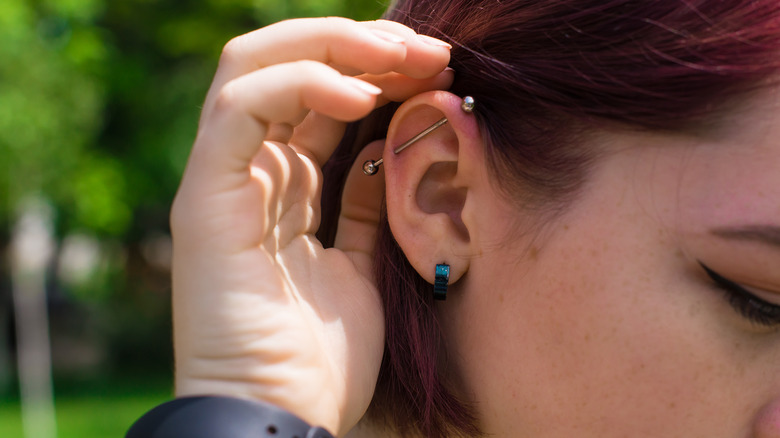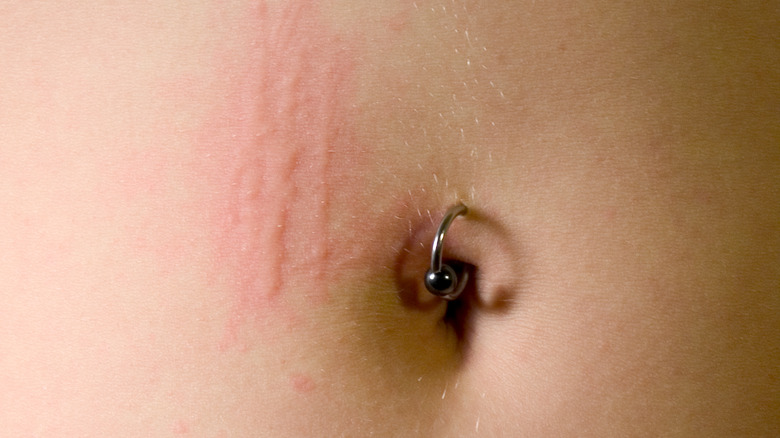What It Really Means When Your Piercing Itches
When damage is inflicted on the skin, our body goes to work mending what's been broken. Because a piercing breaks the skin barrier, the site of the piercing and surrounding area require diligent aftercare to allow for proper healing and to avoid potential infection (via WebMD). New piercings are most vulnerable during the first four to six weeks following the procedure. Swelling, tenderness, fluid secretions, and crusting are all common side effects as the wound heals, according to Broomall Pediatric Associates. If your piercing itches, is that typical, too?
Itching at the site of your piercing means that your skin is healing itself (per Authority Tattoo). As new skin growth gets underway, the connective tissues inch their way towards the wound. While nearly imperceptible, the body interprets this growth as an itching sensation. Itchiness as a result of scabbing and healing is to be expected. However, itching that's accompanied by additional side effects may be due to something else entirely.
Itching from allergy or infection
In some cases, an itchy piercing may be due to the quality of the jewelry. According to the Cleveland Clinic, allergy to nickel affects about 10% of people in the United States. Commonly used in earrings and other metallic jewelry, nickel can prompt an allergic reaction in the form of an itchy red rash. If you suspect the jewelry may be to blame for your itchy piercing, experts at the Mayo Clinic suggest switching to hypoallergenic jewelry that doesn't contain nickel. Better options, medical experts say, are titanium, 18-karat yellow gold, sterling silver, or surgical-grade stainless steel jewelry.
If your itchy piercing is accompanied by heat, pus, or pain, or you feel sick or feverish, it may be infected (via WebMD). A mild case of infection can be self-treated with repeated applications of saltwater solution and antibacterial ointment. However, if symptoms worsen or do not subside within three days (per Broomall Pediatric Associates), or if the jewelry becomes stuck and you can't remove it, be sure to consult with your physician.
With proper at-home care, you can minimize itchiness as well as reduce the risk for infection. According to Authority Tattoo, you'll want to clean your piercing twice daily with gloved hands using a saline solution. In addition, keep the area dry and exposed to air flow. Lastly, using lotion to moisturize the area throughout the day can help relieve itchiness due to dry skin.


